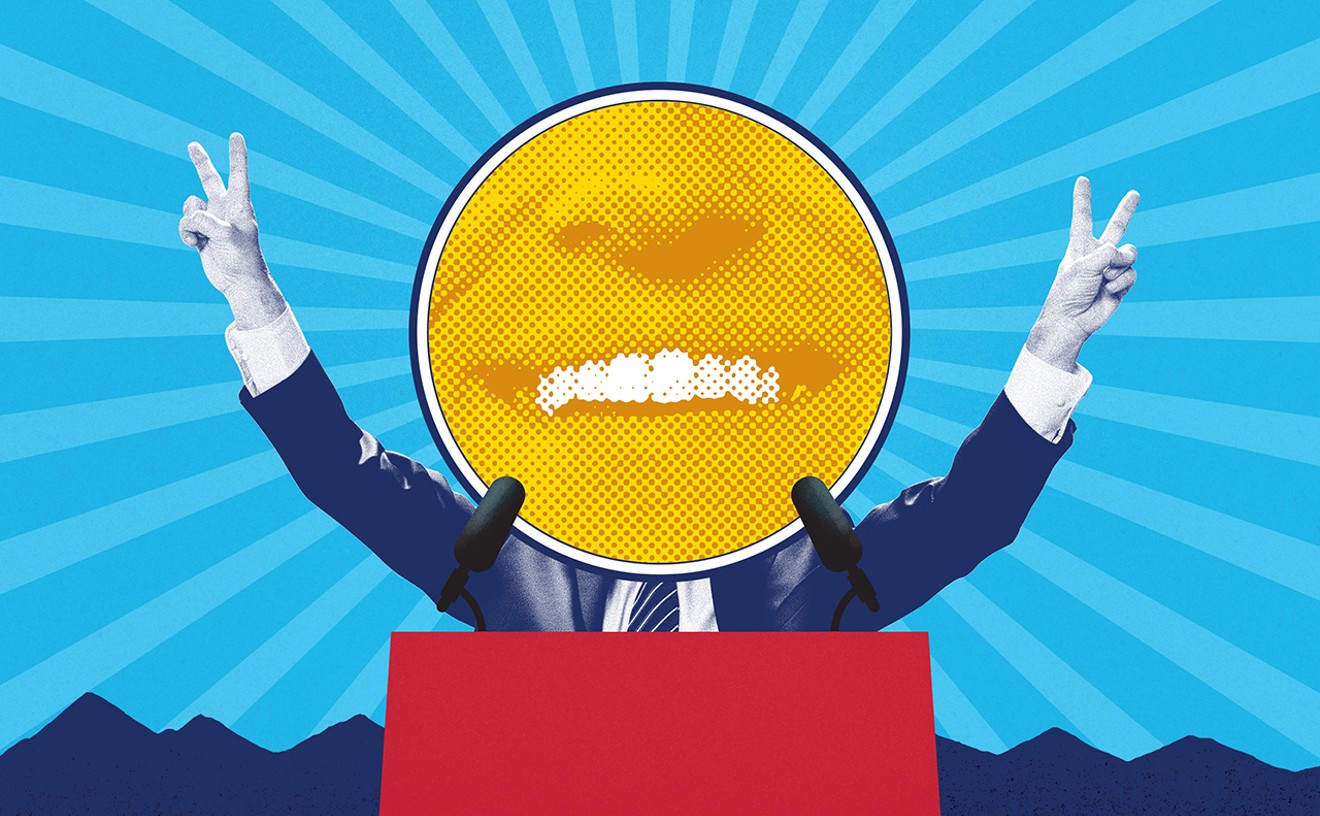According to our friends at the Urban Dictionary, "smurf" has multiple definitions, including "asexual beings that don't even have reproductive organs under those little white pants," "a hilarious substitute for a curse word" and, of course, "to wake up someone who is sleeping by whacking them across the face with your penis."
But perhaps the most appropriate use of the term in this context can be found under "cannasmurf," defined as: "A person who is a member of several medical cannabis dispensaries and who obtains the maximum allowable quantity of cannabis from these clubs in order to obtain a sizable amount of cannabis for personal or commercial reasons."This sort of smurfing would be possible for locals, too. But those visiting from elsewhere would presumably smurf in order to take as much Colorado cannabis home as possible. That would anger authorities in states with more restrictive marijuana laws, some of whom already appear to be profiling vehicles with Colorado license plates, as our story about the Iowa arrest of Brian Unbehaun notes.
Hence, anti-smurfing regulations could be framed as good-neighbor policies -- something important in this context, since officials from conservative states in the region, like Oklahoma, likely already see Colorado as having gone rogue when it comes to weed.
The idea of people visiting Colorado because of its liberal pot policy has already caused serious discomfort among politicians and the like. Recall that Denver Mayor Michael Hancock actively opposed Amendment 64, saying prior to the November election, "We already have evidence that we are losing some of our ground or some of our attractiveness to conventioneers, tourists, because of the medical marijuana leeway that's been afforded in this city. And so those three points...cause me a great deal of concern."Continue for more about the marijuana task force and pot tourism. After A64 passed, a fake marijuana ad purportedly sponsored by the Colorado Tourism Office popped up on YouTube. "Let the recreation begin," the video declared, after which a graphic displayed the office's tag, complete with the 1-800-Colorado number.
As we reported, tourism officials were not amused -- and at this writing, the spot is no longer available online.
Not that the office, or other state agencies, have the option of pretending that Amendment 64 never passed. Indeed, the task force also recommended signs at airports letting travelers know that they're not allowed to take marijuana home with them. As for how many would come to Colorado to sample the state's crop, that remains a matter of speculation. Back in December, travel expert Arthur Frommer argued that marijuana tourism should be embraced here and in Washington state, which also passed a pot measure. Here's an excerpt from his blog:Though local tourist officials are openly critical of the recent statewide votes in Washington and Colorado that legalized the recreational use of small amounts of marijuana, I suggest they are actually overjoyed. Already, hotels in Seattle and Denver are reporting numerous requests for reservations by pot supporters planning visits to Washington and Colorado, and numerous articles have drawn comparisons to the way in which tourism to Amsterdam in The Netherlands has been increased by the easy availability of the well-known drug. Even before the recent vote on legalization, it was known to many that "medical marijuana" was easily obtained in dozens of outlets in both cities that issued the drug in response to a doctor's prescription. For that matter, major cities in other western or near-western states have quietly tolerated the same use of the drug for many years; in San Francisco, as one example, there are numerous "medical marijuana" shops with supplies exchanged for a prescription; and the prescription is fairly easily obtained from compliant doctors issuing the drug for all sorts of mild anxiety problems, and not simply for terminal illnesses. In any event, expect a torrent of new tourism to Seattle and Denver.In contrast, travel writer Rick Steves, who actively campaigned on behalf of the Washington proposal, Initiative 502, expressed doubts that Washington would become a "magnet for stoner tourists."
Amendment 64's Betty Aldworth wasn't so pessimistic.
In the lead-up to election day, she told us that if A64 passed, "we will live in a state where our law-enforcement resources are dedicated to pursuing violent and otherwise serious crime, and where greater tax revenues can be dedicated to making our cities more beautiful and safer. And those things contribute to making Colorado a wonderful place to visit."
For whatever reason.
More from our Marijuana archive: "Marijuana: Michael Hancock rips Amendment 64, campaign responds."











